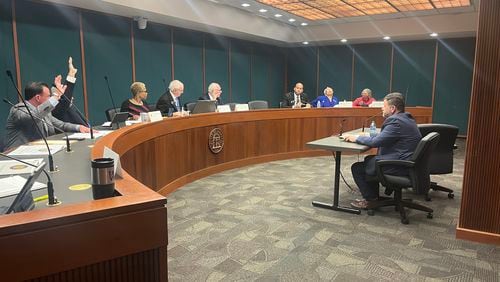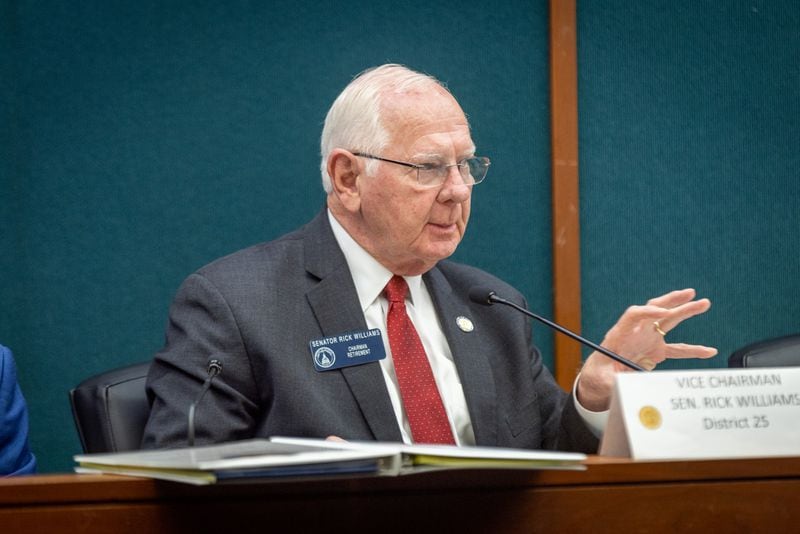Georgia senators advanced a series of election-related proposals Monday that could reduce the number of voting machines on election day, require more audits and post pictures of ballots online.
The bill package arrived in the final days of Georgia’s annual legislative session as the Republican-controlled General Assembly sets priorities ahead of this year’s presidential election.
In addition, the bills would add watermarks to ballots, make voter intimidation a felony, require election workers to be U.S. citizens, allow candidates to proof ballots before they’re printed, and require referendums to raise taxes to be held during high-turnout primary or general elections.
The Senate Ethics Committee approved the measures, House Bill 974, House Bill 977 and House Bill 1207, along party lines, with Republicans in favor and Democrats opposed.
Voting rights advocates told senators they were concerned that fewer voting machines on election day could result in longer lines to vote. Currently, one voting booth is required on election day for every 250 voters.
“The option to reduce the number of voting machines and voting locations is something we oppose because it could increase voter wait times,” said Joey McKinnon of the group Georgia Values Action. “We just don’t want that to happen.”
But supporters of the proposal said voters haven’t had to wait in line on election days in recent years, and county election directors have asked legislators for flexibility to deploy fewer voting touchscreens and printers. Most Georgia voters show up during three weeks of early voting rather than on election day.
State Sen. Rick Williams said waits at voting precincts aren’t caused by too few voting machines. Instead, logjams occur at voter check-in computers, called PollPads, he said.
Credit: arvin.temkar@ajc.com
Credit: arvin.temkar@ajc.com
“What counties need is more PollPads getting the voters in. This is where they’re backed up,” said Williams, a Republican from Milledgeville.
The worst lines in past Georgia elections occurred during high-traffic days of early voting and the 2020 primary, when some precincts closed during the coronavirus pandemic.
Georgia’s presidential primary went smoothly last week without any lines.
Under Georgia’s voting law passed in 2021, if voters have to wait in line for more than an hour for general elections, counties are required to open additional voting locations or reassign voters to other voting locations for the next election.
The measures approved Monday combine several bills that have been previously debated during this year’s legislative session, and they could reach final votes in the coming days before this year’s legislative session ends March 28.
The bills also guarantee that official poll watchers have access to voting locations and can sit or stand “as close as is practicable” to election workers.
Another proposal would set up a program to scan the human-readable text printed on ballots to ensure that they were counted correctly from computer QR codes.
The program would cost an estimated $6 million, and Senate Ethics Chairman Max Burns said legislators are considering the cost during budget negotiations.
At least two other election bills are also under consideration this week.
A bill that would criminalize using deepfake computer-generated versions of politicians to deceive voters cleared the Senate Judiciary Committee on Monday.
And the Senate Ethics Committee plans to debate a bill Tuesday that would, in part, provide more ways for activists to challenge the eligibility of registered voters in Georgia.
Over 100,000 voter registrations have been challenged since 2021 by Republicans who say they’re trying to remove individuals who appear to have moved away.
About the Author









